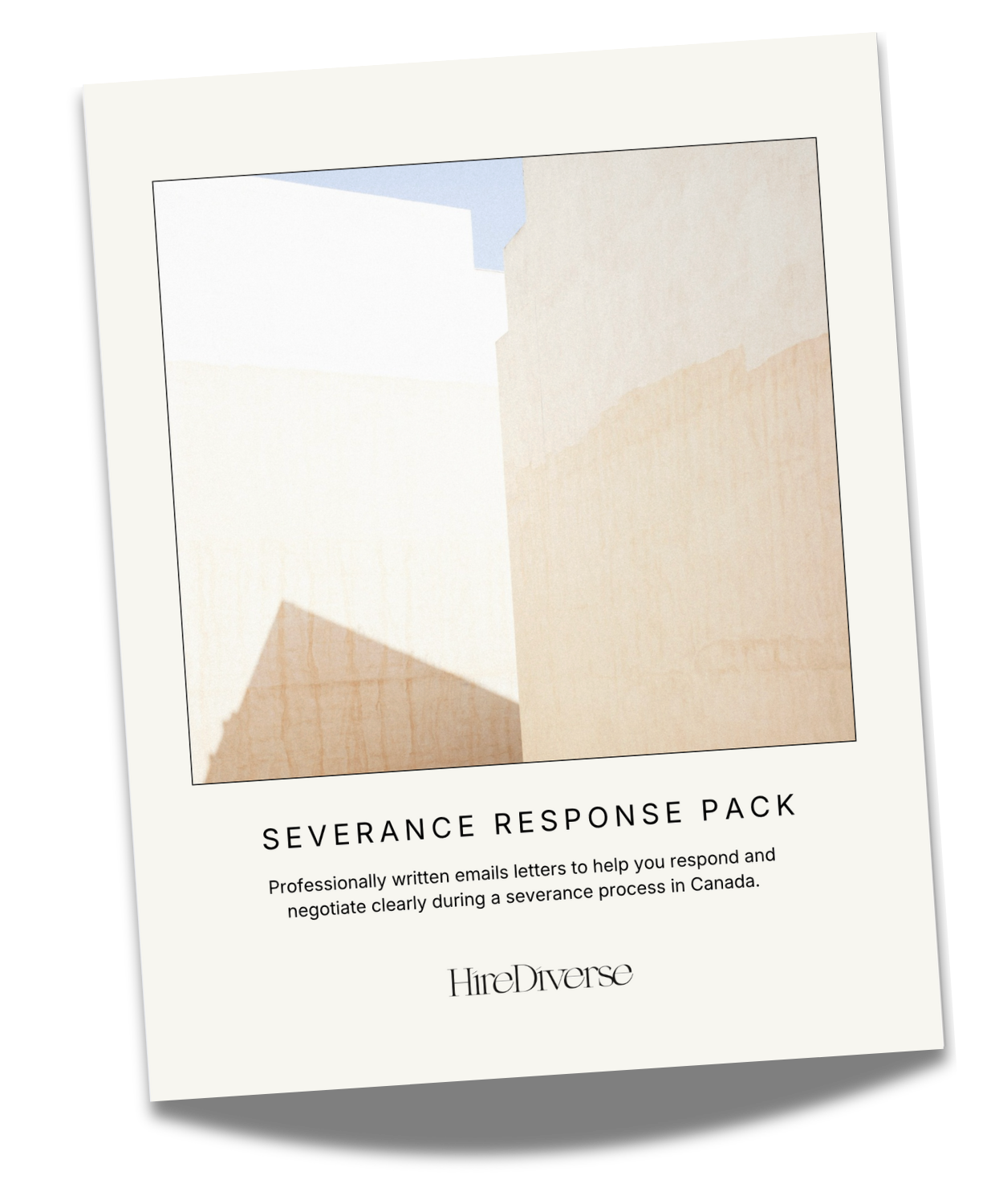Severance in Canada
What You’re Entitled To, What to Say, and How to Respond
Losing a job — or being pushed out — can feel disorienting. Most people are handed a severance package and told to sign quickly. Very few are told what they’re actually entitled to.
This page is your starting point.
Here you’ll find:
How to Write a Severance Negotiation Letter
Severance Pay Eligibility Across Provinces
What to Ask For in Your Severance Package
Signs You May Be Getting a Severance Package
Email Templates to Start Your Severance Talks
If you’ve been stressed or anticipating job loss, it’s even harder to think clearly in the moment. That’s why this hub exists — to slow things down and give you structure.
Start Here: Your Complete Guide to Severance Negotiation in Canada
If you’ve just been offered severance, this is the first article to read. It explains:
Employment standards vs. common law
Why “two weeks per year” is often wrong
What affects your entitlement
When an offer may be too low
This guide breaks down how severance pay in Canada actually works — beyond minimum standards. If you read one thing before signing, read this.
If You’ve Just Been Offered Severance, Do This:
If you’re unsure what to do next, follow this sequence.
01
Read the complete guide
Understand how severance pay in Canada is calculated and if your offer may be too low.
03
Use a structured response
Use structured email templates to respond professionally and negotiate with confidence.
Severance in Canada: Strategy, Templates and Provincial Standards
Severance in Canada is rarely as simple as it first appears. What you are offered under employment standards legislation is often only the minimum. In many cases, common law entitlements can be significantly higher, depending on your age, length of service, role, and the availability of comparable work.
Severance and Employment Standards by Province and Territory in Canada
When you’re facing a layoff or termination, it’s important to know your rights under employment law. Each province and territory in Canada sets its own rules for notice, termination pay, and severance. Here’s a direct list of government resources so you can check the official standards where you live.
Ready to Respond Clearly and Professionally?
Most people don’t need twenty legal calls.
They need structured language, clarity, and confidence.
The Canadian Severance Response Pack gives you:
Negotiation email scripts
Formal counter-offer letters
A phrase bank
A checklist before signing
FAQs
-
Severance pay is compensation your employer may owe you when your job ends. It’s meant to recognize your service and help with the transition. The rules vary by province and by how long you’ve worked.
-
It depends on your length of service, the size of the company, and the laws in your province. For example, Ontario requires severance in some cases where an employee has worked for more than five years. Always check your provincial standards or the federal Canada Labour Code.
-
Each province has its own formula, but it usually takes into account how many years you’ve worked and your regular wages.
Some employers also offer more generous packages through contracts or negotiations.
-
Yes. Employers often expect some back-and-forth. Highlighting your contributions, years of service, or unique circumstances can sometimes increase what’s offered. Having a written letter ready helps you make your case.
-
Not always. Some workers, like those with very short service or those terminated “for cause,” may not qualify. That’s why it’s important to understand your rights and check the laws in your province.
-
Take a breath and don’t rush to sign. Review the offer carefully, compare it to your legal entitlements, and consider seeking advice from an employment lawyer or HR professional.
Ready-to-Use Templates
If you want structured, professionally written severance response emails and letters, you can access the full template pack here:
Download the Response Pack
Includes:
Negotiation email scripts
Formal counter-offer letters
Phrase bank
Scenario-specific variations
Checklist before signing
Designed to give you clarity and control during a difficult transition.












Before signing a severance offer in Canada, learn the key questions that protect your rights, reveal gaps, and strengthen your negotiation position.